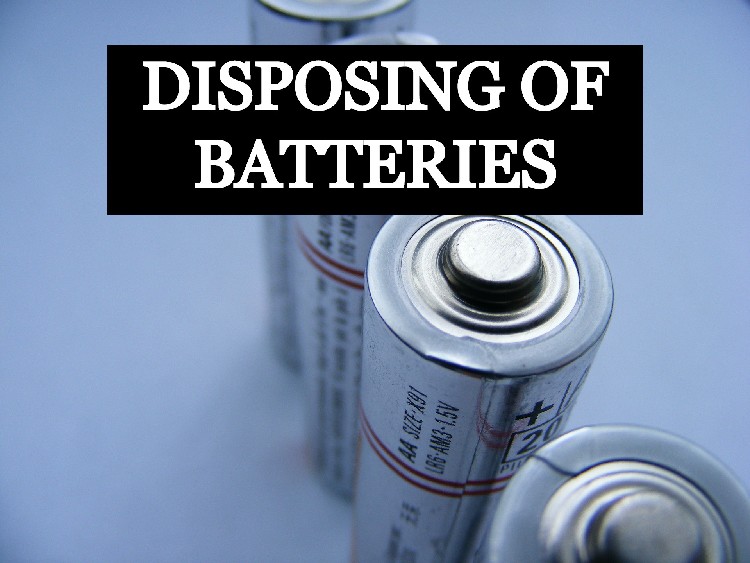
Disposing of Batteries
Simply put, a battery is a storage unit for electrical energy. With so many uses in the home, it's important to know which batteries can safely be thrown away in your household trash, and which batteries should be recycled or properly disposed of.
Single Use Batteries
Single use batteries are the most common batteries in your home. They can be found throughout your home in remotes, flashlight, toys, etc. These types of batteries have been deemed non-hazardous and can be thrown into your trash can, in all states, except California, where it is illegal to throw away any type of battery in your household trash. Recycling single use batteries is an option, although it is not cost free.
Rechargeable Batteries
Rechargeable batteries are also quite common in households. They can be found in cameras, power tools, laptops, and most commonly, cell phones. These batteries contain hazardous materials and should be disposed of properly. There are a few different types of rechargeable batteries. Nickel metal hybrid and nickel cadmium batteries are found in electronics such as cameras, cordless phones, and two-way radios. Lithium-ion batteries are found in portable devices such as cellular phones and lap tops. Small sealed lead acid batteries are less commonly found in the home, they are in items such as emergency exit signs, mobility scooters, and security systems. All of these batteries can, and should, be recycled. This can be done at no cost to you.
Car Batteries
Old car batteries, especially lead-acid batteries, contain a lot of toxic chemicals. If a battery is irresponsibly thrown away at a landfill and left to rot in the ground, it will contaminate the soil with lead, acids, and non biodegradable plastics. Lead is a particularly harmful element, not only highly toxic but also very difficult to clean up, having lasting effects on the environment. If you are getting a new battery installed, most shops will take the old battery for you. If you are replacing the battery yourself, you will need to find a recycling facility who will accept the batteries. Most recycling facilities charge a small fee.
Why Is It Important?
Some batteries have potentially toxic metals in them. Ensuring that these metals do not end up in landfills prevent the toxic metals from leaking and polluting our water. Keeping our environment healthy keeps us healthy!
Related Blog Posts
- Revive Your Home for Spring with This Spring Home Maintenance Checklist
- 10 New Home Trends That Will Make Your Friends Jealous
- How Our Dumpsters Support Realtors and Property Managers: A Comprehensive Guide
- 12 Jaw-Dropping Clutter Statistics That Will Make You Want to Declutter Today!
- Unlocking Space: The Complete Guide on Pocket Door Installation
- Step by Step Guide on How to Install Carpet Like a Pro


